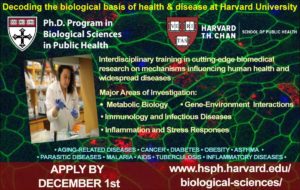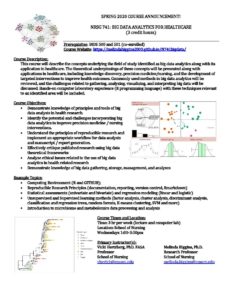Assistant Director for Community – Engaged Learning & Cultural Humility Development
Category : Alumni
- Develop, implement, and manage a community-engaged learning program for students at the Rollins School of Public Health
- Build, manage, and evaluate relationships with local and global community partners. Identify community partner needs and link them to student-led community-engaged learning programs or community-engaged learning courses
- Build and maintain cooperative working relationships with university partners who have similar initiatives related to civic and community engagement
- Conceive and implement programs to recruit, retain and develop diverse learners
- Recommend and assist in the implementation of goals and objectives and develops sequence plans for providing student-led community engagement programs
- Design a tracking system / methods of evaluation for students who participate in community-engaged learning programs
- Provide advising and support to historically underrepresented student groups
- Manage the RSPH program for Coverdell Fellows, a select group of returned Peace Corps volunteers who continue their service to underserved communities and advance the Peace Corps third goal of promoting better understanding of other peoples on the part of Americans
- Integrate cultural humility development into the student experience
- Work closely with RSPH Academic Affairs to advance school-wide competence in cultural humility
- Develop, implement, and manage initiatives to advance cultural humility among students and faculty at the Rollins School of Public Health
- Provide staff support to the RSPH Diversity and Inclusion Committee, including preparing agendas, minutes and maintaining online content
- Provide staff support to the RSPH Open Expression working group
- Liaise with university offices to address bias incident response, training, and open expression policies and practices
Minimum Qualifications:
- A master’s degree in public health, a master’s of science degree in public health or health education, or a master’s in development practice from an accredited school.
Highly Desired Skills:
- Highly organized and able to manage effective relationships as well as local and global partnerships
- Curriculum and program development, community assessment and program evaluation
- Ability to manage multiple priorities and projects
- Excellent communication, interpersonal and organizational skills
- Ability to work effectively in teams
- Strong computer skills, including Microsoft Office suite applications
Preferred Skills:
- Background in higher education and student affairs; community engagement, service learning, or servant leadership as well as cultural humility and diversity and inclusion
- Experience in teaching, facilitation, and instruction
- Experience in developing diversity, inclusion and cultural humility initiatives
- Familiarity with open expression policies and practices in higher education settings
- At least 1 year of program management experience
To apply, click HERE.










Recent Comments